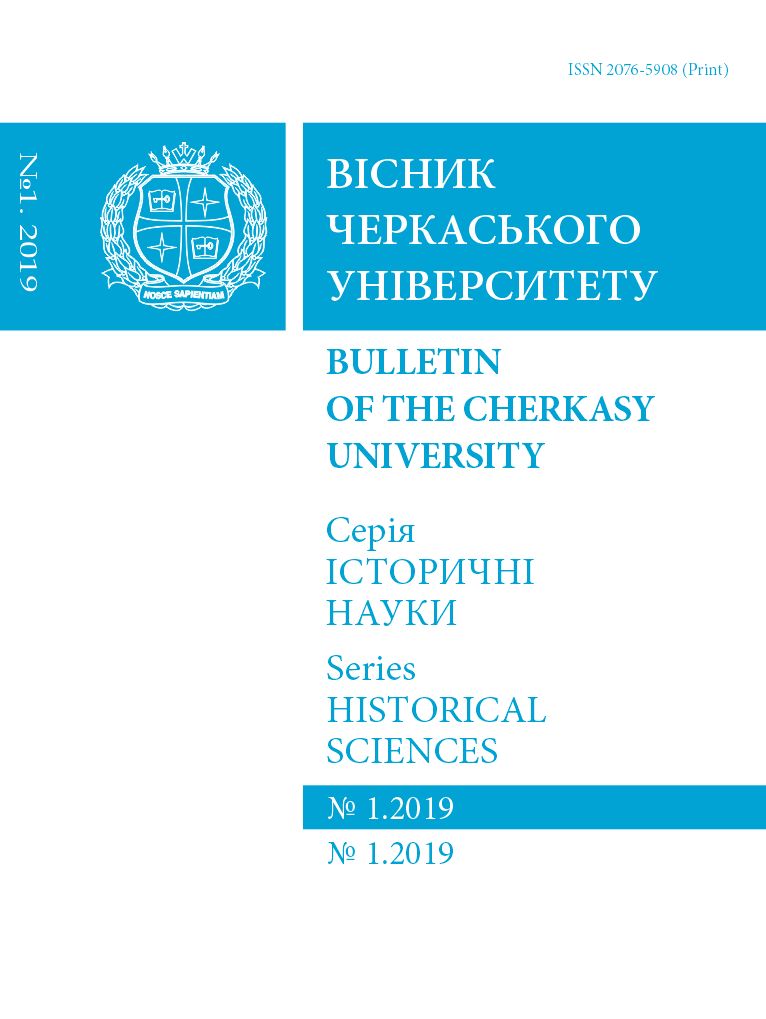Media and information war as a precursor to Russian aggression against Ukraine
Main Article Content
Abstract
Abstract. Introduction. The subject of the research is defined by the author as the content, nature, and logic of the hybrid war against Ukraine, which, in its active phase, is associated with the annexation of Crimea and armed aggression in the territories of Donetsk and Luhansk regions. With the beginning of the campaign and, especially, the large-scale invasion (February 24, 2022), the role of the media and information component of the hybrid war has significantly increased. Essentially, it has gained a defining importance in this protracted aggression spanning many years. This motivates the creation of scientifically substantiated interpretations of its significance. Since the comprehensive task requires in-depth analytical research, this study will touch on only one particular aspect – the circumstances of the media support in the preparation of the expansion. Purpose of the article. To trace the (pre)history of the media and information war as a precursor to Russian aggression against Ukraine. Results. Through the example of Russian aggression against Ukraine, the author has identified the methods of media support for the preparation and execution of aggression. The main attention was devoted to the analysis of conceptual apparatus. It was noted that in this case, there are too many specific circumstances, as the aggressor turned out to be quite well «camouflaged» from the victim country and the entire civilized world. This is largely due to the fact that in recent decades, its media resources have operated much more powerfully than Ukrainian, and partly European ones. Also, because during this period, information technologies were developing very rapidly. So rapidly that in terms of security, democratic states clearly underestimated the dangers emanating from a country with an authoritarian (somewhere despotic) regime. The Russians took advantage of this, relatively quickly overcoming the «democratic shock» of the 1990s, pursuing a course to restore the empire, and therefore generously financing their propaganda channels. By and large, they were better at learning how to attack informationally than Ukrainians were at defending themselves. The first positive experience of information support for Ukraine’s national-state interests was the policy of the third President of Ukraine, Viktor Yushchenko. However, it also proved to be ineffective due to the weakness of civil society and the opposition of the absolute majority of domestic political forces.
Originality. The Kremlin authorities practically never released Ukraine’s information space from their perspective and consistently pursued their revanchist great-power policy. By its essence, it has always been Ukraine-phobic (anti-Ukrainian). Specifying Ukraine’s information policy, it is worth noting that it often relayed Soviet and pro-Russian slogans. The national segment was never a priority (except during the presidency of Viktor Yushchenko). This circumstance affected the overall course of events. After the Revolution of Dignity, the overt information war by the Russians contributed to the rapid annexation of the Crimean Peninsula and the seizure of parts of the Donetsk and Luhansk regions.Conclusion. The media-information warfare, as a precursor to Russian aggression against Ukraine, was driven, firstly, by the preservation of (post-) Soviet ideological traditions, and secondly, by powerful propaganda influence. To some extent, they were only overcome through the Maidans and the natural process of generational change.
Article Details
References
References
Smolii, V. (ed.) (2023). New Look: Russia’s War against Ukraine in the Layers of Time and Spaces of the Past. Dialogues with Historians. Book 3. Kyiv [in Ukrainian].
Zharovska, I., Ortynska, N. (2020). Information War as a Modern Globalization Phenomenon. Bulletin of the National University «Lviv Polytechnic». Series: Legal Sciences, 2, 56–61 [in Ukrainian].
Pavlenko, Z., & Antonov, A. (2022). Hybrid War: Analysis of Concept Definitions. Bulletin of the Yaroslav Mudryi National Law University. Series: Philosophical Sciences, 2(53), 106–119 [in Ukrainian].
Yavorska, H. (2016). Hybrid War as a Discursive Construct. Strategic Priorities. Series: Politics, 4, 41–48 [in Ukrainian].
Pavlychko, D. (2005). Ukrainian National Idea and Its Importance for Asserting the State Independence of Ukraine. Narodna Tvorchist ta Etnohrafiya, 1, 7–20 [in Ukrainian].
(1988). Weather forecast from the program “Vremya” (“Time”) on December 15, 1988. Retrieved from: https://youtube.com/watch?v=MEcILsc0t-M&si=JijonefVn5ccsjDe.
(2015). Irina Khakamada about Ukraine. Euromaidan – 2015. Retrieved from: https://youtube.com/watch?v=-XR-Crm6riY&si=14ijEA9M76pUoZCc.
(1991). Shchedryi Vechir, Dobryi Vechir. Cherkasy Region, 8, 8 [in Ukrainian].
Khudan, M. (1990). “Let’s Give Republic Novorossiya!”. Literaturna Ukraina, 35, 4 [in Ukrainian].
(2010). Moscow expressed “phooey” on awarding Bandera the title of Hero. Retrieved from: http://www.svoboda.fm/politics/ukraine/203102.html [in Ukrainian].
(2009). Yanukovych feels confident in Western Ukraine. Retrieved from: https://zaxid.net/yanukovich_vpevneno_pochuvayetsya_u_zahidniy_ukrayini_n1091283 [in Ukrainian].
(2012). Azarov called the Ukrainian language “Little Russian”. URL: https://www.volynpost.com/news/6089-azarov-nazvav-ukrainsku-movu-malorosijskoyu [in Ukrainian].

